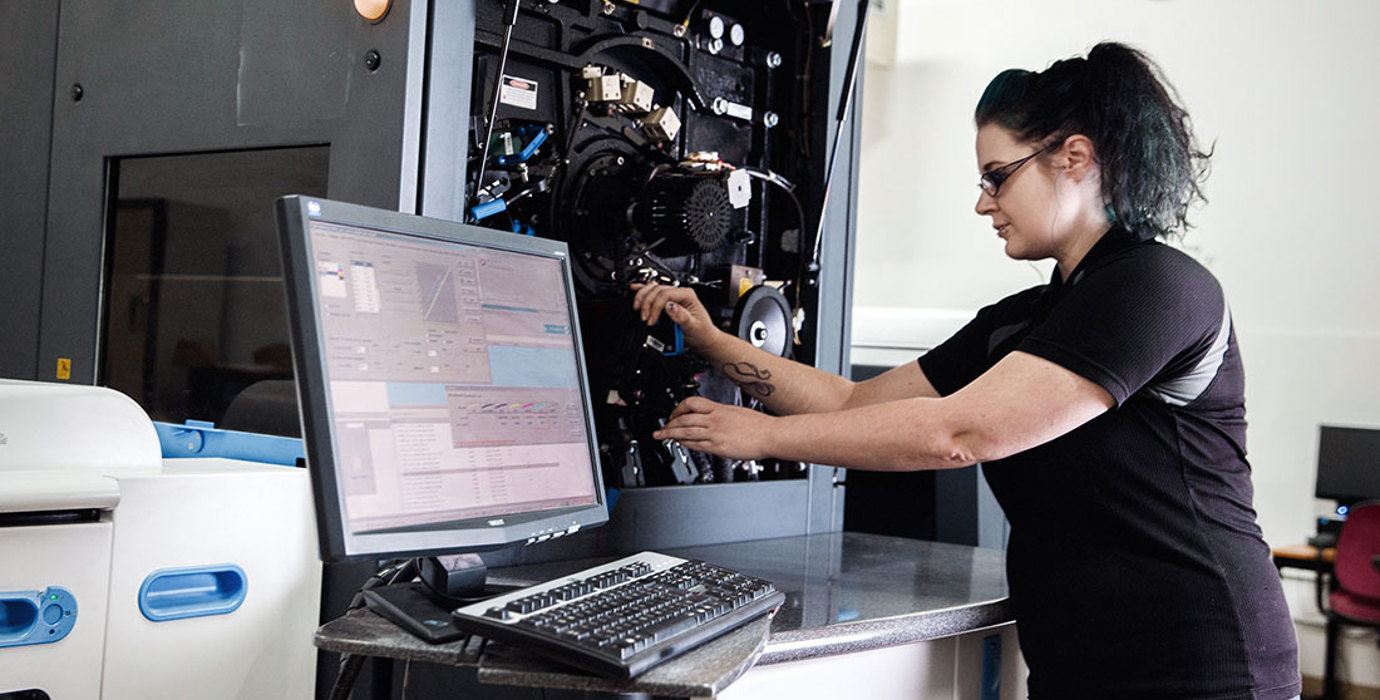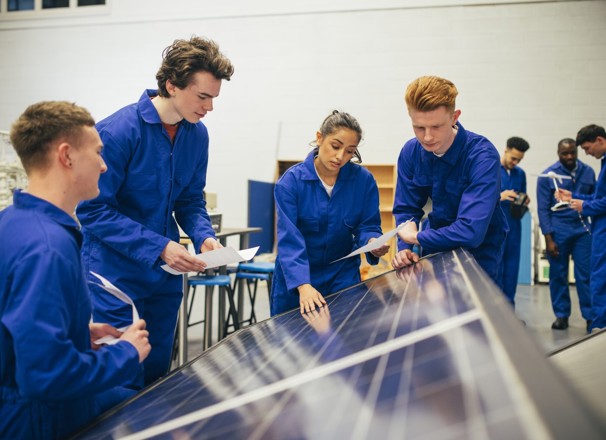Whether it’s computerized processes replacing workers (automation) or machines performing complex tasks and making decisions (artificial intelligence, or AI), the way we work is changing dramatically.
Nothing illustrates that point better than machine learning—the process where a machine learns for itself based on the data it’s given. Machine learning is already evolving faster than human intelligence. It is expected to someday be able to handle the type of complex tasks we assume only people can do.
In the past, people have made dire predictions about how automation and AI will steal jobs. But it is now becoming clear that AI will actually create more jobs than it takes over.
Are automation and AI anything to worry about? Could they help your career? How do you keep your skills up to date in this new technological era?
Automation and AI are evolving in surprising ways
Some of the biggest concerns around automation and AI involve how many jobs could be eliminated and what will happen to those workers.
As AI picks up speed, the number and variety of things it can handle is growing quickly. Consider the range of processes that have already been automated, like various assembly line functions, and the range of products on the horizon, such as self-driving cars and trucks. With companies in Alberta road-testing driverless trucks, some people predict that workers could eventually be displaced.
But automation and AI won’t just take people’s jobs. They will also create new jobs to help maintain the new products and processes that come along. For example, someone will have to design and sell driverless trucks, and the trucks will need upgrades and ongoing maintenance. There may still be a need for an operator in case of a malfunction.
What careers and industries will be affected?
What can you do to prepare yourself for the challenges and opportunities that AI brings?
A report from Deloitte [pdf] looked at the careers that will likely involve humans for the foreseeable future. It said that specific skills—such as auditing, auto mechanics, or computer coding—can quickly become outdated.
It might be smarter over the long term for Canadians to become expert in skills they can transfer between many jobs, and where AI and robots will have trouble competing. These include skills such as collaboration, adaptability, and conceptual thinking, which will always be an advantage for humans over machines.
Careers that have a lower risk of becoming fully automated include:
- Speech pathologist
- Tele-nurse
- Counsellor or therapist
- Game developer
- Teacher
- Lawyer
- Robotics programmer
- Broadcaster
- Personal brand strategist
- Hairstylist
Automation and AI can improve how we work
As automation and AI gain momentum, some surprising opportunities are becoming clearer. Creative work is one area where AI and humans are already teaming up in new and exciting ways. Here are some examples:
- Video game design. If a game designer is having trouble starting a project, AI can take the first step. The designer provides creative feedback, then the AI learns from the feedback and works together with the designer to improve the design process.
- Advertising. An AI system selects images for an advertising campaign. Then a graphic designer makes sure the images are right. The designer’s feedback helps the AI learn and improve.
- Article writing. AI takes on the tasks of basic research and preparing a new document. But it needs a qualified writer or editor to check the article, refocus it, and improve how the words flow. Humans will be needed for this type of creative task well into the future.
AI can also help in professions where gaps in skills exist:
- Radiology. Our health-care system doesn’t have enough radiologists. We use AI to review medical images and determine which ones need to be seen by an expert radiologist. This frees radiologists from looking at simple cases and lets them focus on more complex ones.
- Water treatment. The Alberta Machine Intelligence Institute works with staff at water treatment plants, helping humans get more information from their systems. For example, it helps them decide whether to treat water right away or delay. This makes the system more efficient and cuts costs.
One thing to consider is that when automation of any kind is introduced in an industry, costs go down and demand for goods and services increases. Increased demand leads to more work. While the future of automation and AI is still uncertain, computers and humans will continue for many years to have different but complementary strengths.
How can AI affect fairness and equity?
Many people assume that machines think in a way that is objective. But humans design AI systems. That means that our biases become part of how AI systems operate.
We have seen many troubling outcomes of human bias in AI:
- Hiring. Recruiting systems have been notoriously biased against women. When algorithms are based on past resumés and previous candidates have been mostly men, the algorithm favours men over women.
- Justice system. Algorithms that are used to predict which criminal offenders are most likely to reoffend have been biased against people of colour.
- Policing. AI that is used to predict where crimes are likely to take place have been biased against neighbourhoods where people of colour live. Whether or not certain neighbourhoods actually have higher crime rates, AI has typically sent police to these neighbourhoods.
A University of Toronto team researching AI bias reported that nearly every AI system it tested had significant bias. It said that industries writing algorithms must make sure their products are bias free by removing bias from the data set they use to train AI.
Society is making progress on eliminating bias in AI. The not-for-profit Responsible AI Institute certifies AI products and systems and supports organizations building AI as they deal with these issues.
How can you prepare?
Get a jump on working together with machines and AI. What to do depends on your job and career stage. Here are a few of the many options to consider:
- Further your education and engage in continuous learning. You could consider staying in school, returning to school, or taking part-time training. For example, a piping welder could train to become a robotics welder.
- Prioritize work that requires intuition, empathy, creativity, or hands-on skills. AI will mainly take over routine tasks, freeing workers to focus where only a human could make a difference. Some examples are marriage counsellors, massage therapists, landscapers, and teachers.
- Think about how you could change your job to make the human aspect more central. Businesses will always need strategic thinkers. For example, some accounting tasks may be automated, but financial planners will still do analysis. Robots may replace certain oil and gas jobs, but people will be needed for exploration and production.
To maximize your potential as AI takes greater hold in society and the workplace, you should:
- Pursue skills in software, computers, and new forms of digital technology.
- Consider training in data science or data analysis. AI can filter and interpret massive amounts of data, but needs people who can extract meaning from those results.
- Hone creative skills, like writing or designing.
- Develop management skills. The people who work with AI will still need to be managed.
Automation and AI could bring great opportunities for workers who move in the right directions. Robotics, automation, and AI may create jobs we can’t even think of yet. Take steps now to make sure you’re ready for these exciting changes.


